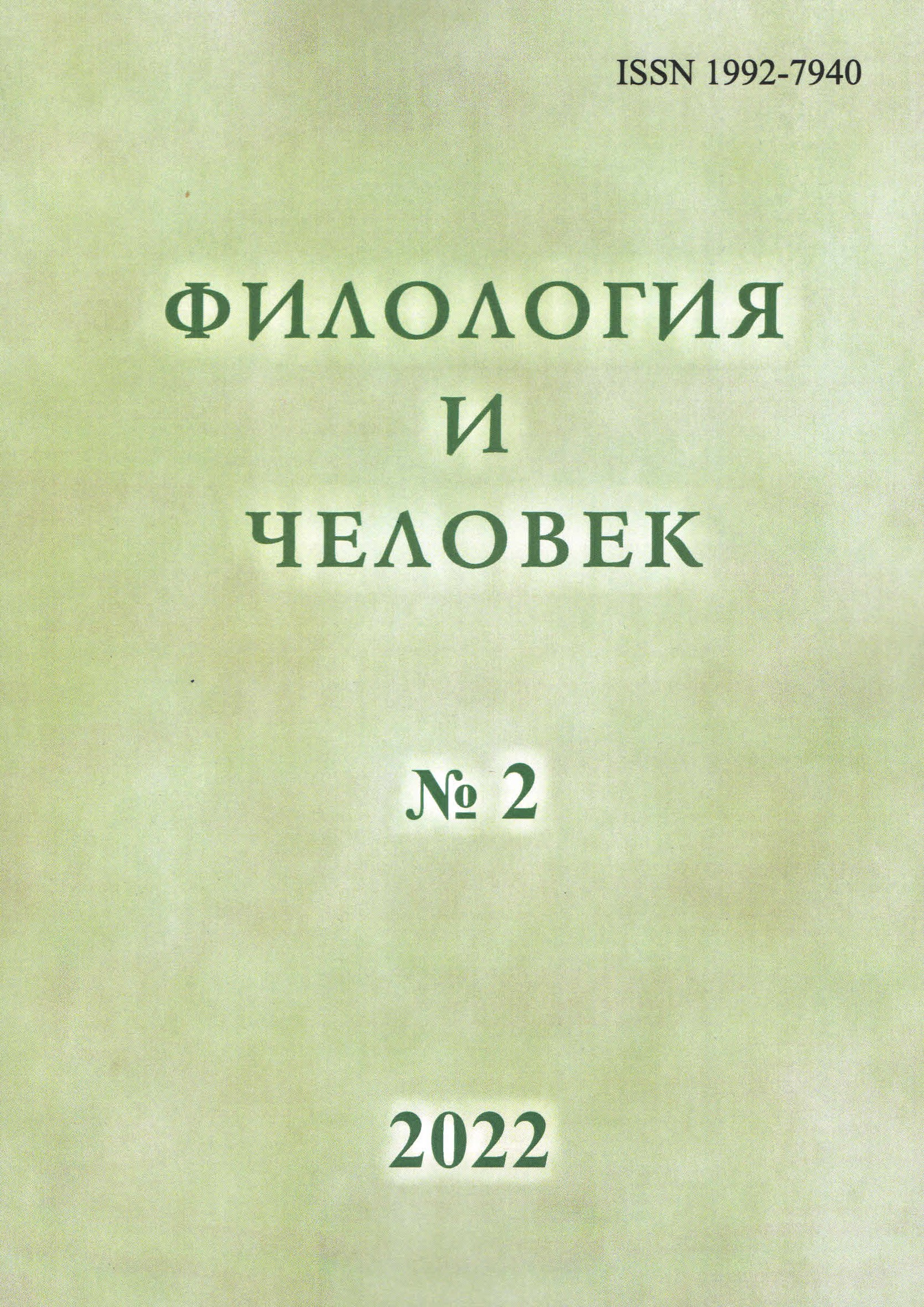Code-Switching as a Literary Device in “Thank You for Smoking” by Ch. Buckley
Abstract
This article examines the foreign-language elements in Christopher Buckley's novel “Thank You for Smoking”. The author studies possible reasons for code switching in the novel and makes the conclusion about the extent to which the idea of code-switching can correspond to the "global purpose" of the novel. The article describes some lexical and phraseological foreign language units mentioned in the text, analyzing the cases where the main character of the novel uses foreign words. The protagonist often resorts to the use of expressions from French and German in order to a) show his attitude to the extralinguistic situation changing around him; b) to create ingenious wordplay in his speech, using them in connection with some precedent phenomena in the English-speaking culture, even outside his workplace, although it is primarily his professional activities that require doing so. The author of the present paper also analyzes the approach to the use of lexical and phraseological units which may or may not be clichés when transferred to the English language. A conclusion is made about the possible use of foreign language elements as an artistic literary device within the framework of this novel.
Downloads
Metrics
References
Александрова О. В. Изменения в языковой системе в условиях экономической и социокультурной глобализации. Язык, литература и культура как грани межкультурного общения. Сборник научных трудов. М., 2016.
Беликов В.И., Крысин Л.П. Социолингвистика. М., 2001.
Крысин, Л. П. Владение разными подсистемами языка как явление диглоссии. Русское слово, свое и чужое: Исследования по современному русскому языку и социолингвистике. М., 2004.
Магидова И.М., Давыдов М.В., Рыжкова Е.В., Бурсикова Н. А. Методические рекомендации по теории и практике фонетики английского языка. Киев, 1990.
Angermeyer, P.S. Lexical cohesion in multilingual conversation. International Journal of Bilingualism, 2002 Vol. 6, No 4.
Blake, N.F. Cambridge History of the English language. Cambridge, 1992.
Grim, F. The topics and roles of the situational code-switching of an English-French bilingual // Journal of French Language Studies. 2008 Vol. 18, № 2.
Myers-Scotton C. Social Motivations for Codeswitching. Evidence from Africa. Oxford studies in language contact. Oxford, 1993.
Putter, A. Code-Switching in Langland, Chaucer and the Gawain-Poet: Diglossia and Footing. Code-Switching in Early English, 2011.
Rothwell, W. English and French in England after 1362. English Studies, 2001 Vol. 82 No. 6.
Список источников
Buckley, C. Thank You for Smoking. Random House, 2006.
Редакционная коллегия научного журнала «Филология и человек» придерживается принятых международным сообществом принципов публикационной этики, отраженных, в частности, в рекомендациях Комитета по этике научных публикаций (Committee on Publication Ethics (COPE), Кодекс этики научных публикаций), а также учитываeт ценный опыт авторитетных международных журналов и издательств.
Во избежание недобросовестной практики в публикационной деятельности (плагиат, изложение недостоверных сведений и др.), в целях обеспечения высокого качества научных публикаций, признания общественностью полученных автором научных результатов каждый член редакционной коллегии, автор, рецензент, издатель, а также учреждения, участвующие в издательском процессе, обязаны соблюдать этические стандарты, нормы и правила и принимать все разумные меры для предотвращения их нарушений. Соблюдение правил этики научных публикаций всеми участниками этого процесса способствует обеспечению прав авторов на интеллектуальную собственность, повышению качества издания и исключению возможности неправомерного использования авторских материалов в интересах отдельных лиц.





